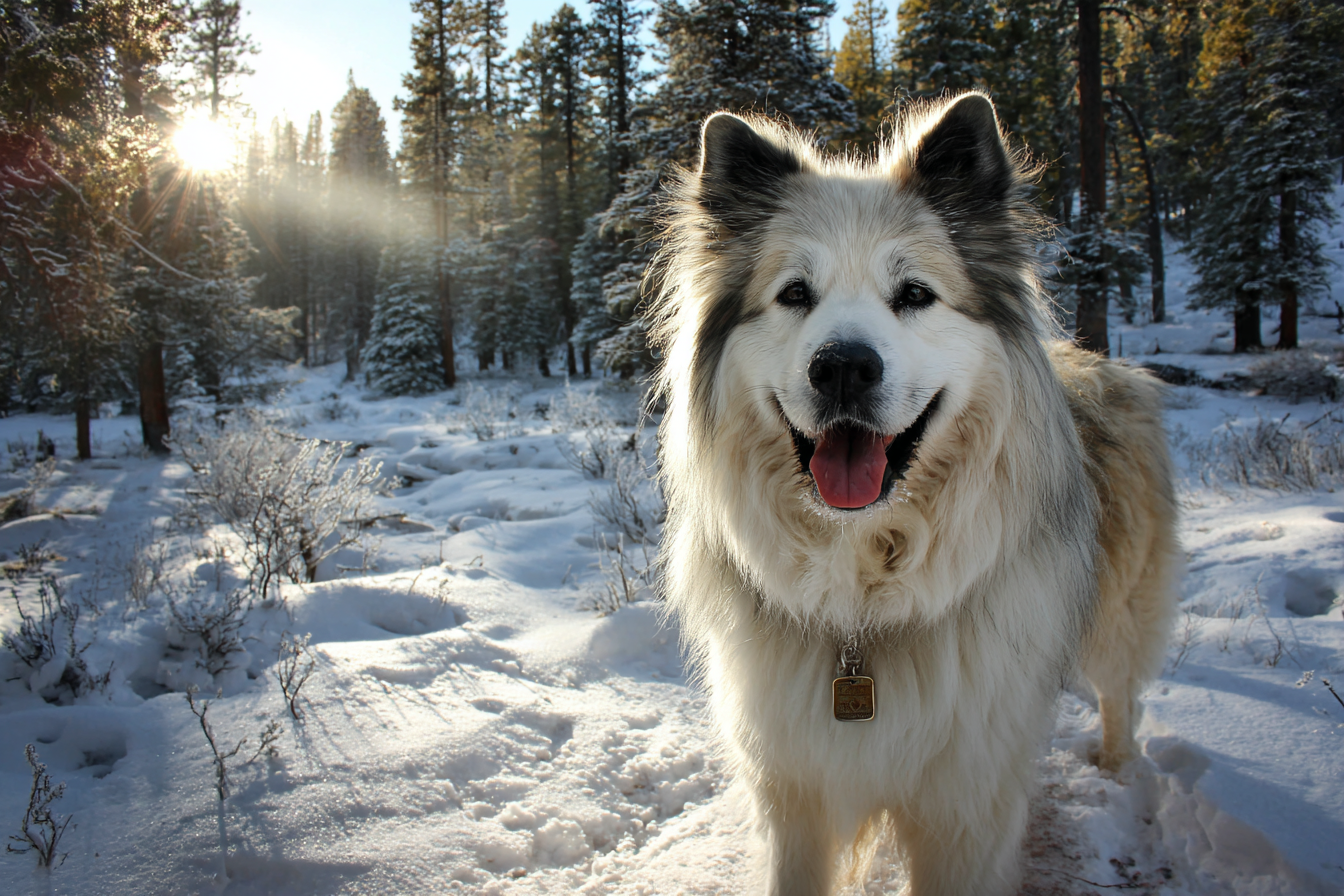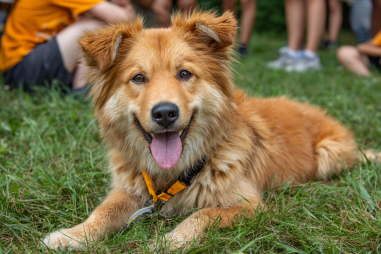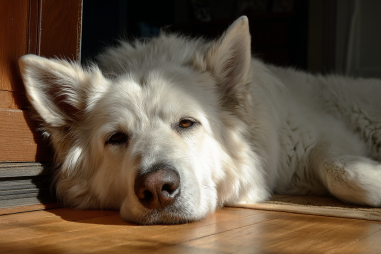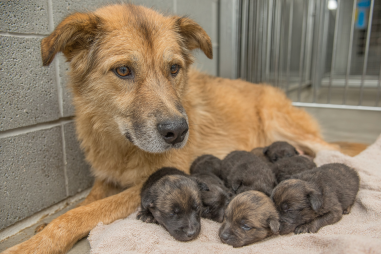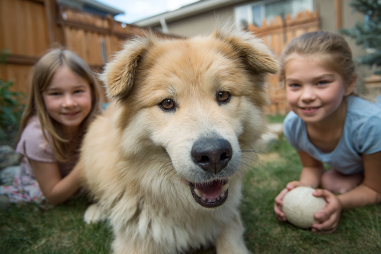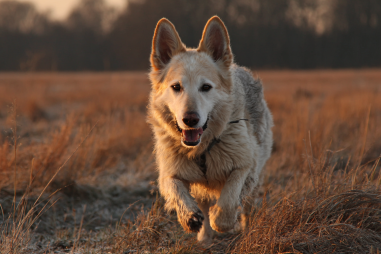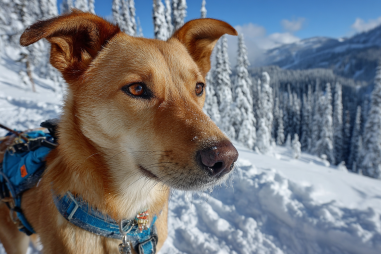The Chinook dog breed is a fascinating and unique member of the sled dog family, well-known for its lovable personality and striking appearance. Developed specifically for sledding, this breed combines strength, intelligence, and a gentle nature, making it a stand-out choice for families and outdoor enthusiasts alike. If you’ve ever wondered what makes the Chinook different from other sled dogs, from their looks to their behavior, this guide will walk you through everything you need to know about the Chinook dog breed characteristics.
Introduction to the Chinook Breed
The Chinook dog breed originated in the United States in the early 20th century, created by Arthur Walden in New Hampshire. Walden wanted a sled dog that was fast, powerful, and adaptable to the demanding conditions of sledding across icy, snowy terrain. Unlike some other sled dogs bred solely for endurance or speed, the Chinook was designed to be a balanced working dog with a friendly disposition suitable for companionship as well.
Chinooks are relatively rare compared to other sled dog breeds such as Huskies and Malamutes, but they hold a special place in the hearts of those who know them. Their versatility, loving personality, and strong work ethic have made them excellent family pets as well as trusty sled dogs.
Physical Characteristics and Appearance
Chinooks are medium to large-sized dogs with an athletic build, perfectly suited for sled pulling and outdoor activity but also graceful enough for everyday life. They typically weigh between 50 and 90 pounds and stand about 21 to 27 inches tall at the shoulder.
One of the most striking features of the Chinook is its solid coat color, usually a rich golden or tawny shade that varies slightly from light yellow to a deeper reddish hue. Unlike many sled dogs that have patchwork or multi-colored coats, the Chinook is uniform in color, adding to its distinctive appearance.
Their coat is dense and double-layered, with a soft undercoat to provide insulation against cold weather and a coarser topcoat that repels moisture and snow. Their ears are triangular and set high on the head, often standing erect or semi-pricked, giving them an alert and intelligent expression. The eyes are almond-shaped and dark, which adds warmth to their overall look.
Chinooks have strong, muscular legs and well-padded feet designed for traction on snow and ice, making them excellent helpers in winter conditions. Their tails are brush-like and typically curl up over their back when they are active or alert, contributing to their overall balanced and agile appearance.
Typical Temperament and Personality Traits
One of the defining characteristics of the Chinook is their gentle and social nature. These dogs are known for being affectionate, loyal, and great with people of all ages, including children. Their friendly temperament means they generally get along well with other dogs and pets, making them a wonderful addition to multi-pet households.
Despite their sled dog lineage, Chinooks are not overly aggressive or high-strung. They are calm yet energetic, offering a perfect balance for active families who want a dog that enjoys playtime and companionship but can also relax at home. Their intelligence makes them quick learners, responsive to training, and eager to please their owners.
Chinooks tend to form strong bonds with their families and thrive on being involved in daily activities. They are loyal protectors but are usually not aggressive or territorial, making them excellent watchdogs without being overly dominant or intimidating. Their high emotional intelligence helps them tune into their owners’ moods and respond with affection and calmness.
Common Behaviors and Activity Needs
Due to their heritage as working sled dogs, Chinooks require regular exercise and mental stimulation to stay healthy and happy. They are naturally energetic and enjoy activities such as running, hiking, and pulling sleds or carts. Without sufficient exercise, they can become bored and potentially develop destructive behaviors.
Chinooks have a strong desire to work alongside their human companions, so activities that engage them physically and mentally are ideal. This might include obedience training, agility courses, or participating in dog sports designed for energetic breeds.
While they are capable of performing demanding tasks, Chinooks are not hyperactive dogs. They exhibit a “work hard, rest easy” attitude, meaning after a good workout or play session, they are content to relax quietly at home. This makes them well-suited for both active lifestyles and more relaxed family routines.
Because they are social animals, Chinooks do not enjoy being left alone for long periods. They flourish with plenty of human interaction and may experience separation anxiety if isolated. Providing companionship, whether through family presence or another pet, helps keep their spirits high.
How the Breed Compares to Other Sled Dogs
When compared to other popular sled dog breeds like the Siberian Husky, Alaskan Malamute, and Samoyed, the Chinook stands out in several ways:
- Temperament: Chinooks are typically more mellow and less stubborn than Huskies or Malamutes. They are known for their friendly and easy-going nature, making them more suitable for families unfamiliar with sled dogs.
- Coat and Appearance: Unlike the often multi-colored Husky or the fluffy Malamute, Chinooks have a unique solid golden coat, which sets them apart visually.
- Work Ethic: While Chinooks are strong and fast enough for sled work, they were bred to balance power with endurance and a cooperative attitude. Some sled breeds focus more on speed or raw power, but the Chinook values teamwork and adaptability.
- Rarity: Chinooks remain one of the rarest sled dog breeds, whereas Huskies and Malamutes are much more common and widely recognized.
- Size: Chinooks tend to be slightly lighter and more agile than the bulkier Malamutes, offering a good blend of strength and speed.
This combination of traits means the Chinook often fits well into family life and various dog activities beyond sledding, whereas other sled dogs may require more specialized handling and care.
Why Chinooks Make Great Pets
Chinooks are much more than just working dogs; their balanced characteristics make them wonderful companions. Their friendly and loyal temperament means they quickly become a beloved family member, providing affection without overwhelming behavior. The social nature of the breed helps them get along well with children and other animals, creating a peaceful and happy home environment.
In addition to their personality, Chinooks are intelligent and trainable, which makes managing their exercise and social needs easier for new dog owners. Their moderate grooming requirements and adaptable activity level also add to their suitability for a variety of lifestyles, whether it’s an active outdoor family or someone looking for a calm, affectionate pet.
Moreover, the Chinook’s athletic capabilities can be a joy for owners who want a dog that can participate in hiking, running, or even sledding during winter months—offering both companionship and shared adventure.
Ultimately, the blend of physical attributes, temperament, and versatility makes the Chinook a unique and compelling dog breed well worth considering for anyone interested in a loyal, capable, and loving canine friend.

